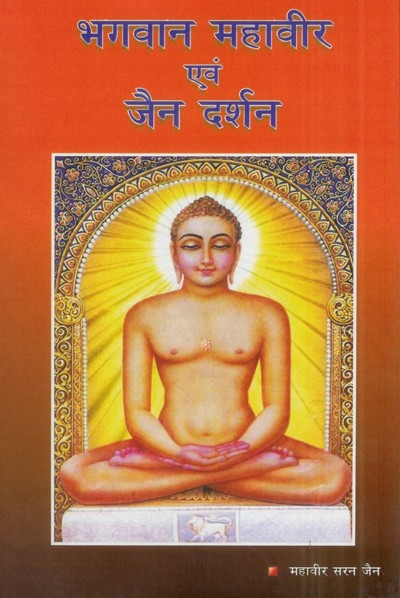A query may be raised that how can an arhanta be in state of full bliss whereas, even in his this stage, he possesses delight and anguish producing karma. The work of this karma is giving pleasure and pain. The solution of this query is that delusion producing karma is the root cause of all passions. Because of delusion producing karma, the soul possesses darśana-mohanīya (perception delusion) and cāritra-mohanīya (conduct deluding) karmas. The feeling of pleasure and pain is due to association of desired and undesired things. The imagination of desired and undesired in a man arises due to deluding and passionate emotions—attachments and aversion. An ignorant worldly jīva experiences pleasure and pain due to rise of delusion producing karma. This fact has been discussed previously that all karmas are bound due to passionate emotions. The psychic states associated with desire, etc., which are the modifications of jiva constitute the cause of bondage; but arhanta and omniscient are completely free from delusion producing karmas such as desire, etc. That is why; they do not experience any pleasure or pain which arises through delusion producing karmas. In the case of arhanta and omniscient, the karmic inflow of the opposite psychic is absent. (When this is absent) the remaining karmic conditions, (since they are incapable of producing bondage leading to saṁsāra) are declared to be non-binders. Their blissful stage always remains stable and maintained.
In Jain Philosophy, the progression of the soul from a state of delusion to a state of liberation is described in the fourteen stages of spiritual progress (गुण स्थान). In the twelfth stage, the state is attained for a short period of time when all passions are annihilated through the destruction of all Mohanīya delusion karmas. In this stage, the remaining three destructive karmas remain at Kṣayopśama stage. The remaining three destructive karmas means
- Jñānāvaraṇīya karmas ज्ञानावरणीय कर्म (Sentience obstructing karmas)
- Darśanāvaraṇīya karmas दर्शनावरणीय कर्म (Perception obstructing karmas)
and- Antarāya karmas अंतराय कर्म (Obstructing karma).
The soul proceeds to the next stage. The souls in the thirteenth stage of spiritual progress (guṇasthāna), dispel the darkness of ignorance altogether with the rise of the sun of omniscience and attain Godhood and also achieve nine accomplishments (right faith, conduct, consciousness, perception, charity, gain, Bhoga, Upbhoga and vitality). Since these Sayogī Kevalī Jins (सयोग केवली जिन अथवा अरिहंत) are free from these causal agents, by rule, free from karmic influxes. These same Kevalī Bhagwāna enlighten the path of emancipation by their divine discourses on the path of liberation of the soul. In this way, it may be summarized that Souls on being free from passions do not receive further karmic accumulations and do not get into karmic bondages. The karmic accumulations do not get back in to existence and don’t stick to soul who has become free from passions (vītarāga). These Sayoga Kevatī Jins (सयोग केवली जिन अथवा अरिहंत), still are with the operations of the mind, speech and body, stationed in the midst of karmas but not never soiled by the karma-dirt - just like gold in the midst of mire. Psychic imperfections (attachment etc.), are the causal agents of wrong belief, wrong knowledge, non-abstinence etc.
Self and psychic imperfections are different substances. Both have their own existence. As far their mode is concerned, they originate and decay on their own. The soul himself transforms. In this way, this cannot be stated that karma binds jīva. This also cannot be stated that the karma anger, pride, conceit, deceit etc., transform the emotions of jīva in anger, pride, conceit and deceit. Jīva transforms himself because of his anger, because of his pride, because of his conceit, because of his deceit. Karma does not force our souls to indulge in in all sorts of impure deeds and feelings of delusion, attachment and aversion.
This can also be explained in another style. Three gems stated in Jain philosophy are the path to emancipation. They are known as right faith, right knowledge, and right conduct. As the whiteness of the linen is diluted being covered by dirt similarly the quality of the right faith of the soul is covered by the dirt of wrong belief or the non-righteousness, the quality of the right knowledge of the soul is covered by the dirt of ignorance and the quality of right conduct is destroyed through the dirt of passions. Since the knowledgeable is free from material categories, he is, by rule, free from karmic influxes. The self, by his own enterprise, protecting himself from virtuous as well as wicked activities that cause merit and demerit, and stationing himself in right faith and right knowledge, detached from body and desires etc., devoid of external and internal attachments, contemplates on the self, through his own self, experiences oneness with the self. Such a self, contemplating on the self, becomes the nature of right faith and knowledge, the knowledgeable person enjoys the fruits of rise of karmas, but does not attract bondages. The knower has no Psychic dispositions that these and other objects. Independent all over, he is solely of the nature of the knower. The knower surely renounces attachment of all substances; while stationed in the midst of karmas, he is not soiled by the karma-dirt just like gold in the midst of mire.
When this soul on account of its own failings assumes different virtuous or vicious manifestations, karma is called conventional cause or passively instrumental cause thereof. Forgetting one and regarding other entities as desirables and undesirables and indulging in psychic karmas as delusions, attachments and aversions, is the failing of the soul. From transcendental viewpoint (niścaya naya) a substance can neither help nor harm to other substance. To sum up, it can be said that though the statement is prevalent in general that karmas bind soul, but infect, that is the jīva only which binds the karma.
We can conclude that when the soul remains with fermentative emotions like attachment and aversion it accumulates its suitable category of karmic matter. Only this is the main cause of the world. Destroy the aversion. Remove the attachment. By doing this you would be happy in the world.
छिंदाहि दोसं विणएज्ज रागं। एवं सुही होहिसि संपराए।।
‘Chindāhi doṣaṁ viṇayejja rāgaṁ, evaṁ suhī hohisi saṁparāye’.(Dashavaikalic, 2/5)
“One who remains unanimous in the midst of pleasures and pains is a sramana, being in the state of pure consciousness.” (Pravachanasar, 1/14)
“As gold does not cease to be gold even if it is heated in the fire; an enlightened man does not cease to be enlightened on being tortured by the effects of karma.” (Samayasar, 184)
“The unenlightened takes millions of lives to extirpate the effects of karma whereas a man possessing spiritual knowledge and discipline obliterates them in a single moment.” (Bhagavati Ārādhanā, 10)
1.10 Sayog Kevali Jin or an Arhanta:
 Dr. Mahavir Saran Jain
Dr. Mahavir Saran Jain
